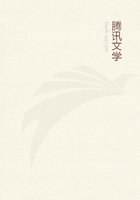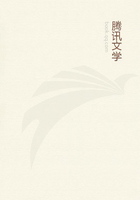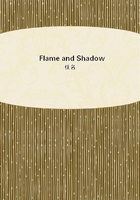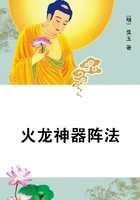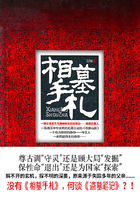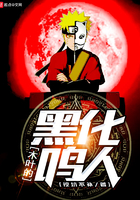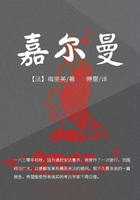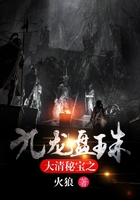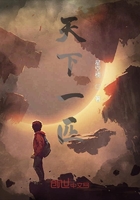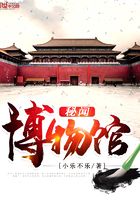I am, I must honestly confess, more and more unable to perceive anything which an orthodox Christian may not hold, in those physical theories of "evolution," which are gaining more and more the assent of our best zoologists and botanists. All that they ask us to believe is, that "species" and "families," and indeed the whole of organic nature, have gone through, and may still be going through, some such development from a lowest germ, as we know that every living individual, from the lowest zoophyte to man himself, does actually go through. They apply to the whole of the living world, past, present, and future, the law which is undeniably at work on each individual of it. They may be wrong, or they may be right: but what is there in such a conception contrary to any doctrine - at least of the Church of England? To say that this cannot be true; that species cannot vary, because God, at the beginning, created each thing "according to its kind," is really to beg the question; which is - Does the idea of "kind" include variability or not? and if so, how much variability? Now, "kind,"or "species," as we call it, is defined nowhere in the Bible. What right have we to read our own definition into the word? - and that against the certain fact, that some "kinds" do vary, and that widely, - mankind, for instance, and the animals and plants which he domesticates. Surely that latter fact should be significant, to those who believe, as I do, that man was created in the likeness of God. For if man has the power, not only of making plants and animals vary, but of developing them into forms of higher beauty and usefulness than their wild ancestors possessed, why should not the God in whose image he is made possess the same power? If the old theological rule be true - "There is nothing in man which was not first in God" (sin, of course, excluded) - then why should not this imperfect creative faculty in man be the very guarantee that God possesses it in perfection?
Such at least is the conclusion of one who, studying certain families of plants, which indulge in the most fantastic varieties of shape and size, and yet through all their vagaries retain - as do the Palms, the Orchids, the Euphorbiaceae - one organ, or form of organs, peculiar and highly specialized, yet constant throughout the whole of each family, has been driven to the belief that each of these three families, at least, has "sported off" from one common ancestor - one archetypal Palm, one archetypal Orchid, one archetypal Euphorbia, simple, it may be, in itself, but endowed with infinite possibilities of new and complex beauty, to be developed, not in it, but in its descendants. He has asked himself, sitting alone amid the boundless wealth of tropic forests, whether even then and there the great God might not be creating round him, slowly but surely, new forms of beauty? If he chose to do it, could He not do it? That man found himself none the worse Christian for the thought. He has said - and must be allowed to say again, for he sees no reason to alter his words - in speaking of the wonderful variety of forms in the Euphorbiaceae, from the weedy English Euphorbias, the Dog's Mercuries, and the Box, to the prickly-stemmed Scarlet Euphorbia of Madagascar, the succulent Cactus-like Euphorbias of the Canaries and elsewhere; the Gale-like Phyllanthus; the many-formed Crotons; the Hemp-like Maniocs, Physic-nuts, Castor-oils, the scarlet Poinsettia, the little pink and yellow Dalechampia, the poisonous Manchineel, and the gigantic Hura, or sandbox tree, of the West Indies, - all so different in shape and size, yet all alike in their most peculiar and complex fructification, and in their acrid milky juice,- "What if all these forms are the descendants of one original form? Would that be one whit the more wonderful than the theory that they were, each and all, with the minute, and often imaginary, shades of difference between certain cognate species among them, created separately and at once? But if it be so - which I cannot allow - what would the theologian have to say, save that God's works are even more wonderful than he always believed them to be? As for the theory being impossible - that is to be decided by men of science, on strict experimental grounds. As for us theologians, who are we, that we should limit, ?priori, the power of God? 'Is anything too hard for the Lord?' asked the prophet of old; and we have a right to ask it as long as the world shall last. If it be said that 'natural selection,' or, as Mr. Herbert Spencer better defines it, the 'survival of the fittest,' is too simple a cause to produce such fantastic variety - that, again, is a question to be settled exclusively by men of science, on their own grounds. We, meanwhile, always knew that God works by very simple, or seemingly simple, means; that the universe, as far as we could discern it, was one organization of the most simple means. It was wonderful -or should have been - in our eyes, that a shower of rain should make the grass grow, and that the grass should become flesh, and the flesh food for the thinking brain of man. It was - or ought to have been - more wonderful yet to us that a child should resemble its parents, or even a butterfly resemble, if not always, still usually, its parents likewise. Ought God to appear less or more august in our eyes if we discover that the means are even simpler than we supposed? We held Him to be Almighty and All-wise. Are we to reverence Him less or more if we find Him to be so much mightier, so much wiser, than we dreamed, that He can not only make all things, but - the very perfection of creative power - MAKE ALLTHINGS MAKE THEMSELVES? We believed that His care was over all His works; that His providence worked perpetually over the universe.

